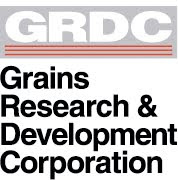Sponsors Section
What a fantastic conference, 2800 people with a large percentage of farmers. The whole congress was professionally run. With numbers of farmers attending, the agro-companies were out in force. They all had booths and some were very fancy with young models handing out the pamphlets and running competitions for prizes with the company logos on them. They had 3 sessions running concurrently. The topics ranged from crop nutrition to water footprints. They sessions started at 8:30am in the morning and finished between 6:30 and 8:00pm, but they did have a 2 hour lunch break. Aerial Gymnists
The basics of ZT were not talked about as ZT is now the standard practice. There were a number of good sessions on crop nutrition and the fate of the different elements in the soil. The whole nutrient cycling system was discussed and it really only starts becoming a large component of available N:P:K after 5-7yrs of ZT. In particular Nitrogen can take longer as the now valued residue, along with the micro-organisms tie up quite a lot of this N. A new area for benchmarking for me, was a ratio of fertilizer : yield. Fernando Garcia talked about the efficiency of crops in terms of kilograms of N:P:K applied compared to what yield was achieved. As an example he said that 1kg of N produces on average (a horrible term) 34 of Wheat where the same kg produces 144 of Maize.
As ZT has minimal disturbance the Movement of P through the profile is very slow with this eing carried out by roots when they grow and then die. This is a very small amount so it is very important to continue putting the Phosphorous in close proximity to the seed. Over time the P will be quite evenly spread through the top 5-7 centimetres as the fertilizer applied P and the P residue will be released whilst it breaks down.
There were a number of workshops on biotechnology, with Round Ready featuring well. The biotech companies are working on a number of the GM crops with drought resistance a key goal. At present a couple of companies had done this. The crops achieve good yields whilst stressed but in a normal type of season do not achieve higher yields.
The Argentinean farming is being squeezed at present by the government as they want agriculture to subsidize other industries . At present if they grow Wheat they get taxed up to an incredible 70%. This is shown as 35% tax on sales of wheat for export and then 35 cents in the peso income tax. Soybeans are not far behind. They are not even allowed to export their beef. As a result the numbers of cattle has dropped dramatically as the price has dropped sharpely.






No comments:
Post a Comment